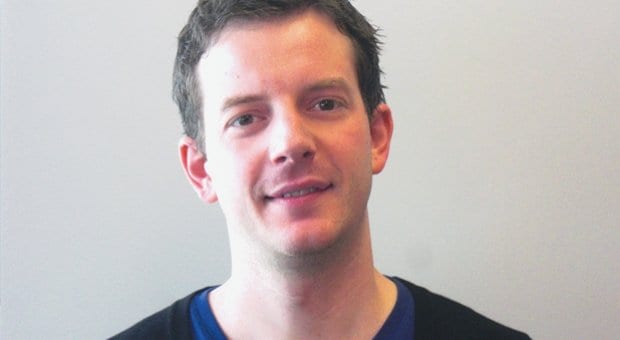I have a 30-something friend — let’s call him Mark — who once worried his father would murder him because of his sexuality. Mark’s small-town Ontario father was so homophobic that his gay teenaged son feared for his life. So Mark moved to Toronto as soon as he was old enough, got a job and started a new life. He’s since come out to his dad, who didn’t kill him. Mark’s father instead accepted his son for who he is — like any good parent should — and even got over his own unwarranted fear of gay people in the process.
Many similar stories don’t have such a happy ending. Xtra recently sat down with five queer youth who have experienced homelessness or currently live in one of Toronto’s shelters. In many cases, these kids have had to deal with homophobic parents, guardians or stepparents. Youth such as Ryan M, who says his sexuality is a “major disappointment” for his father.
Despite several attempts to get back on his feet, Ryan, who remains homeless, recently moved from a downtown shelter where he was harassed to one in North York because he feared for his safety.
Nakisha Millien’s story reflects a similar reality, one in which LGBT youth face harassment, homophobia and transphobia in those few Toronto shelters where they can find space. “I was kind of scared for my own life,” Millien says of her experience in a Toronto shelter.
These stories point to the urgent need for a facility dedicated to assisting young homeless LGBT people, who, studies show, account for as much as 40 percent of street youth. Such a shelter would be only the first step in tackling the problem of youth homelessness in a city that has long brushed aside this embarrassing — and mounting — social issue. A report from Covenant House, a downtown youth shelter, estimates that as many as 2,000 youth are homeless every night in Toronto. Unfortunately, there are only about 500 shelter beds for these youth to fight over.
Meanwhile, advocates raised the alarm last winter when the province ended its Community Start Up and Maintenance Benefit, which annually supported 200,000 individuals, including queer youth escaping abusive environments. A study released March 3 by the Canadian Homelessness Research Network finds that a lack of dedicated funding to tackle the growing problem of youth homelessness is a problem across the country. It notes that Canada is lagging behind other Western countries, including Australia and the United States, in dealing with the issue.
Sadly, even with dozens of credible studies that set out ways to mitigate growing homelessness, it remains all too common to find Canadian leaders who, like Toronto Councillor Giorgio Mammoliti, put forward wacky ideas about how to solve the problem. Mammoliti, who was chosen to chair Rob Ford’s failed special task force on homelessness, has said he wants to close all Toronto shelters and force homeless people off the streets.
Fortunately, amidst such lunacy there has been an increasing chorus of reasonable people voicing support for a dedicated queer youth shelter. Federal NDP deputy leader Megan Leslie recently told Xtra that her party plans to put a commitment for such a shelter into its 2015 election platform. Toronto mayoral candidate Olivia Chow also told Xtra she supports the creation of an LGBT youth shelter. And groundbreaking research on queer youth homelessness by I Alex Abramovich has spurred some city councillors into action, including Kristyn Wong-Tam, who successfully fought for the creation of a working group that will look into the viability of such a shelter.
Despite these positive signs, there’s been a conspicuous lack of outrage about the extent of this crisis. And we’ve yet to see any firm financial commitment or plan to address youth homelessness from federal, provincial or local governments.
Perhaps Toronto needs a vocal celebrity champion like Cyndi Lauper, who recently raised money to open True Colors, a 30-bed housing facility for LGBT youth in New York City. “These young people often face discrimination and at times physical assault in some of the very places they have to go for help,” Lauper said. “This is shocking and inexcusable!”
It sure is.
Danny Glenwright is Xtra’s managing editor.


 Why you can trust Xtra
Why you can trust Xtra


